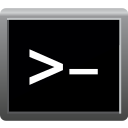CLI Agents
Command-line tools that execute development tasks autonomously through terminal interfaces.
CLI Agents — Claude Code Alternative
CLI agents are command-line applications that automate coding workflows directly from the terminal. These tools integrate with existing development environments and version control systems seamlessly. They handle tasks like code generation, refactoring, and testing through simple commands. Solo developers use CLI agents as a Claude code alternative for streamlined, scriptable automation.
Strengths
- Integrate natively with existing terminal-based workflows and development environments
- Provide scriptable automation that can be incorporated into build processes
- Offer lightweight resource usage compared to GUI-based development tools
- Support batch processing of multiple files and projects simultaneously
- Enable rapid prototyping through simple command invocation
- Work effectively in headless environments and CI/CD pipelines
Weaknesses
- Require command-line proficiency and familiarity with terminal operations
- Lack visual feedback and interactive debugging capabilities
- May have limited context awareness compared to IDE-integrated solutions
- Often provide less sophisticated error handling and user guidance
- Can be challenging to configure for complex, multi-step workflows
Best for
Experienced developers who prefer terminal-based workflows and need automated coding assistance. Particularly valuable for DevOps engineers, system administrators, and developers working in remote or constrained environments.
Typical workflows
- Automated code generation from templates or specifications
- Batch refactoring across multiple files in a project
- Integration testing and validation in CI/CD pipelines
- Quick prototyping and scaffolding of new projects
- Documentation generation from code comments and annotations
When to choose this over Claude Code
- You primarily work in terminal environments and prefer command-line tools
- Your workflows require integration with existing scripts and automation systems
- You need lightweight tools that work effectively in resource-constrained environments
When Claude Code may be a better fit
- You prefer interactive, conversational interfaces for development tasks
- Your projects require complex context understanding and multi-step reasoning
- You need visual feedback and guidance during development processes
FAQ
What programming languages do CLI agents typically support?
Most CLI agents support popular languages like Python, JavaScript, Go, and Rust. Language support varies by specific tool implementation.
How do CLI agents handle authentication and API access?
CLI agents typically use configuration files, environment variables, or command-line flags for authentication. Setup requirements vary by provider.
Can CLI agents work offline?
Some CLI agents offer offline capabilities for basic operations. However, most require internet connectivity for AI-powered features and model access.
How do CLI agents integrate with version control systems?
CLI agents integrate with Git and other VCS through standard command-line interfaces. Many can automatically commit generated changes or create branches.
What are the system requirements for running CLI agents?
Requirements vary, but most CLI agents need minimal system resources. They typically require a modern operating system and network connectivity.
How do CLI agents compare in terms of cost and pricing?
Pricing models vary widely among CLI agent providers. Some offer free tiers, while others use usage-based or subscription pricing structures.









